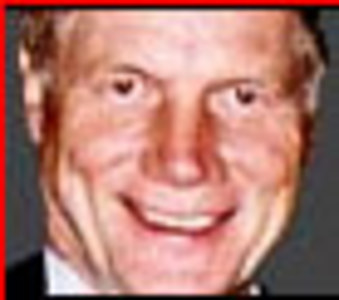Jean Charest leads the charge against the sovereigntists again. The coming Quebec election will mark his fifth electoral campaign against them, and what a record he has posted.
His Liberals beat the Parti Québécois in the elections of 2003, 2007 and 2008. No one had won three in a row in Quebec since Maurice Duplessis (who won four straight).
Mr. Charest’s Liberals also scored well in the 1998 campaign, winning the popular vote. Lucien Bouchard’s Parti Québécois took the most seats, but the Liberals’ tally wounded Mr. Bouchard, leaving him without a mandate to move toward another referendum. He retired from politics two years later.
Mr. Charest also pounded the separatists during the 1995 referendum campaign, famously waving his passport during speeches for the No side. His was one of the few federalist voices that resonated.
If anyone’s counting, that’s five campaigns and five successes for Mr. Charest. For 17 years, he has thwarted separatist ambitions. Although he never seems to get much credit, we owe him some. This guy is a national unity giant.
It hasn’t always looked that way. Mr. Charest opposed the Clarity Act and as premier has sometimes appeased the nationalist crowd to bolster his support. He doesn’t speak passionately about the country or come across as a great patriot. It helps explain Canada’s lack of appreciation, but it’s part of the craftiness required to win in Quebec.
What might have happened without him is a good question. Recall that after the 1995 referendum, the Quebec Liberals were without a strong standard-bearer. Mr. Charest was leader of the federal Progressive Conservatives, holding the Tories’ only seat in the province. In 1998, the Quebec Liberals asked him to become their leader, and he answered the call. Within months, he was up against the formidable Mr. Bouchard. A weaker opponent might have been steamrollered. Not the kid from Sherbrooke.
His next opponent was Bernard Landry – no slouch either. He had succeeded Mr. Bouchard and looked to be on his way to a victory in the 2003 election – a win that could have triggered no small degree of unity duress. But Mr. Charest, a skilled campaigner, took him apart, particularly in the televised debate. He capitalized on a newspaper report that cited Jacques Parizeau again blaming “money and the ethnic vote” for the referendum loss. Mr. Landry was caught off guard.
Mr. Charest won only a minority four years later as a third party, Action Démocratique du Québec, surged. But in 2008, he called a snap election and won back a majority mandate with the core message that the province needed political and economic stability – similar to Stephen Harper’s winning platform last year.
Mr. Charest learned his deft political skills early. He was recruited by Brian Mulroney at the age of 26 and won a seat in the 1984 election. Two years later, he became the youngest cabinet minister in Canadian history. As premier, running a province of unusual voter volatility, he has had his share of stumbles, bad judgment and low times. More than once, he has been rated the most unpopular premier in Quebec history. But his instincts always made recovery possible.
With the student strike and the inquiry into corruption in the construction industry, he is under siege again. There are signs Quebeckers have wearied of him. But no one should be surprised if he pulls another triumph out of the hat.
If he doesn’t and the PQ wins, it won’t be the end of the world. Sovereigntist passions aren’t what they used to be in Quebec, one of the reasons being Mr. Charest’s work. He has stifled them for the greater part of two decades.

























Laissez un commentaire Votre adresse courriel ne sera pas publiée.
Veuillez vous connecter afin de laisser un commentaire.
Aucun commentaire trouvé